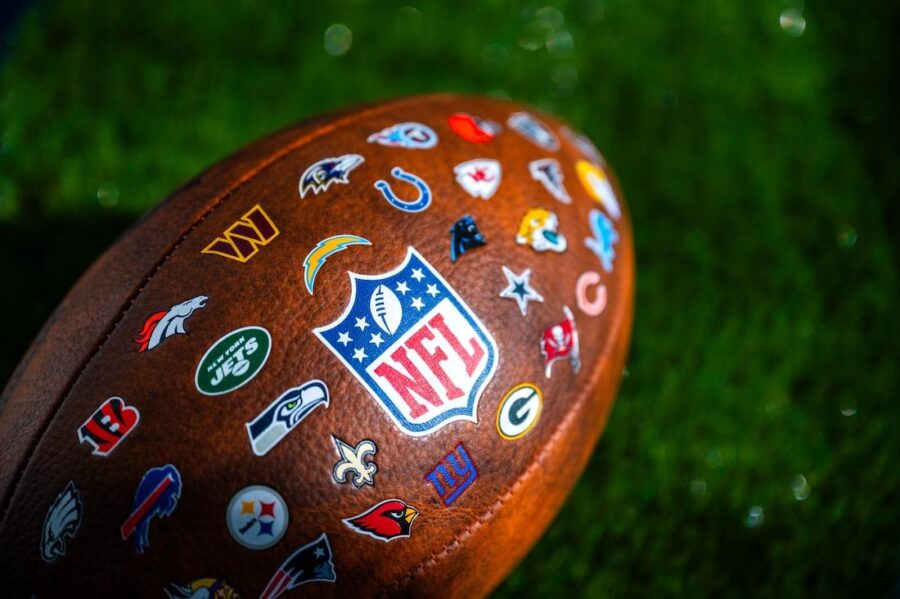NFL to tighten rules around player-based prop bets

The NFL has signaled its intention to tighten the rules surrounding player-based prop bets, working with state lawmakers, regulators, and sportsbook operators, following a series of betting-related controversies.
In a memo sent to all 32 teams in the league, obtained by The Athletic, the NFL reminded players and coaches of the rules on wagers linked to injuries, officiating decisions, single-player actions such as a kicker missing a field goal, and other events that can be vulnerable to manipulation.
According to The Athletic, the memo was not linked to the recent scandals, but it comes at a time of heightened concern as other leagues grapple with integrity breaches.
The MLB recently faced federal indictments involving Cleveland Guardians pitchers Emmanuel Clase and Luis Ortiz, who allegedly threw pitches in exchange for bribes.
In response, the MLB capped pitch-related wagers at US$200 and barred them from parlays, prompting Ohio Gov. Mike DeWine to urge other leagues to adopt similar curbs.
The NBA has also faced controversy after federal investigators charged player Terry Rozier and coach Chauncey Billups in an alleged insider information scheme.
The NFL has avoided major scandals in recent seasons, issuing its last betting-related suspensions in 2023. Still, NFL players have faced betting-related pressure from fans, with Giants kicker Graham Gano stating that he regularly receives death threats over plays that cost bettors money.
Charlotte Capewell brings her passion for storytelling and expertise in writing, researching, and the gambling industry to every article she writes. Her specialties include the US gambling industry, regulator legislation, igaming, and more.
Verticals:
Sectors:
Topics:
Dig Deeper
The Backstory
Amid integrity alarms, the NFL tightens its stance
The NFL’s move to narrow player-based proposition wagers lands after a year of cascading integrity scares across U.S. sports and mounting pressure from regulators. League officials recently reminded teams of existing prohibitions on bets tied to injuries, officiating, or single-player outcomes that are susceptible to manipulation, signaling closer coordination with states and sportsbooks to limit risk. The memo, reported by The Athletic, was not pegged to a single scandal but reflects a market that has grown faster than guardrails in some corners. The concern: micro events can be gamed, attract harassment, and undercut trust in results even when no crime is committed.
Player safety and public confidence are central. High-visibility moments such as a missed field goal or a single pitch now carry betting consequences that fuel online abuse. NFL players have described persistent threats after plays that altered wagers. The league has largely avoided fresh suspensions since 2023, but it has watched other leagues confront legal cases tied to alleged bribery and insider information. With regulators probing and lawmakers filing bills, the NFL’s preemptive tightening positions the league on the front foot rather than reacting after a scandal breaks.
Other leagues provided the cautionary tales
Baseball’s recent controversies offer a template for action. Major League Baseball moved to cap pitch-related bets at $200 and bar them from parlays after federal indictments alleged bribery involving Cleveland pitchers. That prompted Ohio Gov. Mike DeWine to press for broader limits beyond baseball. The governor later urged regulators to prohibit certain prop markets and emphasized athlete safety and game integrity in a public call to action. His office reiterated that the integrity costs outweigh any tax gains and urged harmonized rules across leagues and sportsbooks.
The NBA also faced allegations that cut directly into the data flows that fuel betting markets. Federal investigators charged a player and a coach in an alleged scheme involving insider information. These high-profile cases underscored how player-level or event-specific bets can be most vulnerable to manipulation, or at least perceived as such, eroding public trust. They also spurred cross-league conversations about what should be bettable, what should not, and how technology partners and sportsbooks police the gray areas at scale.
Statehouses are drawing the lines — and not always in the same place
The fight over prop bets has been most intense at the state level, where tax revenue and consumer protection collide. In Ohio, DeWine asked the casino regulator to remove certain props after the baseball probe and a rise in threats against players. Republican Rep. Brian Stewart pushed back, citing $359 million in betting tax revenue since early 2023 and calling prop markets a popular feature that drives engagement and funding. He vowed to resist a broad ban, even as he said he would restore college props that are already prohibited under current rules. Stewart amplified his position in a public post, which he shared on social media, and DeWine’s office laid out the case for curbs in a formal statement. Supporters of the governor’s approach argue that narrower markets reduce harassment and limit manipulation incentives, while opponents warn of pushing bettors to illegal sites.
Massachusetts is moving in a different direction. Sen. John Keenan introduced the “Bettor Health Act” to ban in-game prop bets and restrict advertising during live sports broadcasts, citing regret for his original vote to legalize betting. The proposal would also double operator payments into the state’s public health trust fund. The state has collected more than $315 million in sports betting taxes, but Keenan says the social costs are mounting and that micro markets intensify risk for problem gamblers.
College sports sit at the center of the harassment equation
The NCAA has been aggressive in asking states to restrict or eliminate college player props, pointing to a sharp uptick in online abuse directed at student-athletes. Under an expanded data partnership with Genius Sports, the association said access to NCAA data will require that no sportsbook offer negative prop wagers that invite targeting of players after poor performances. The policy is part of a broader push that includes tracking abuse, advocating for state-level bans and urging operators to limit markets that do not affect game outcomes.
Several states have responded. New Jersey advanced a bill to prohibit player-specific prop bets on college contests, with a Senate committee voting in favor. Sponsors cited harassment and integrity risks as justification for the ban. North Carolina lawmakers filed a bipartisan bill to bar college prop bets starting July 1, 2025, defining such wagers as those on statistics or events that do not directly affect the final score. These efforts mirror policies already in place in states such as Ohio, Maryland, New York, Pennsylvania and Louisiana, which restrict or ban college props to varying degrees. The NCAA’s push for a nationwide approach has not yielded federal legislation, but the state-by-state map is shifting toward tighter college protections.
Regulators and operators weigh uniformity against innovation
For regulators, the problem is fragmentation. Absent a federal standard, leagues and states are improvising. Ohio’s governor can press for sweeping changes, while a neighboring state may leave markets untouched. New Jersey is moving to close college player props while Massachusetts debates whether to hit the brakes on in-play props across the board. Operators must adapt to a patchwork where a market is available in one jurisdiction and banned in the next, complicating product road maps and compliance. That increases the appeal of league-led limits, such as MLB’s cap on certain pitch bets, which can create de facto norms across states without waiting for legislatures.
Industry groups warn that eliminating popular props could send customers to offshore sites. Public health advocates counter that in-play player props are the quickest path to harm and harassment, especially among younger bettors steeped in social media. Both arguments are shaping what gets offered and how aggressively sportsbooks promote micro markets during live play.
Why it matters now
The NFL’s recalibration signals where the debate is heading: toward fewer single-player, single-moment markets and more emphasis on outcomes less prone to manipulation or targeted abuse. As leagues share data more widely and live betting expands, every injury update, substitution and play call becomes a commodity. Policymakers are deciding how much of that should be wagered upon. If Ohio moves first on pro props, others may follow, just as several states did after the NCAA pressed for college restrictions. If Massachusetts curbs in-play props, it could set a precedent for broader limits on the most volatile micro bets.
The stakes are high for athletes facing harassment, for leagues protecting integrity and for states counting tax revenue. The next several months will show whether the NFL’s push catalyzes a shift toward tighter, more uniform prop rules, or whether the market continues to split along state lines. The direction will determine not only what fans can bet on this season, but also how sports confront the trade-offs between engagement and integrity in a high-speed, data-rich era.
Ohio’s legislative pushback to a prop ban and DeWine’s public appeal, outlined in a governor’s statement, frame the clash. The NCAA’s stance is detailed in its data deal expansion with Genius, as reported in a review of new protections for college athletes. On the legislative front, see Massachusetts’ proposed curbs on in-play props, New Jersey’s college prop ban advancing and North Carolina’s bipartisan bill targeting college props. Stewart’s public comments are available on social media here.








